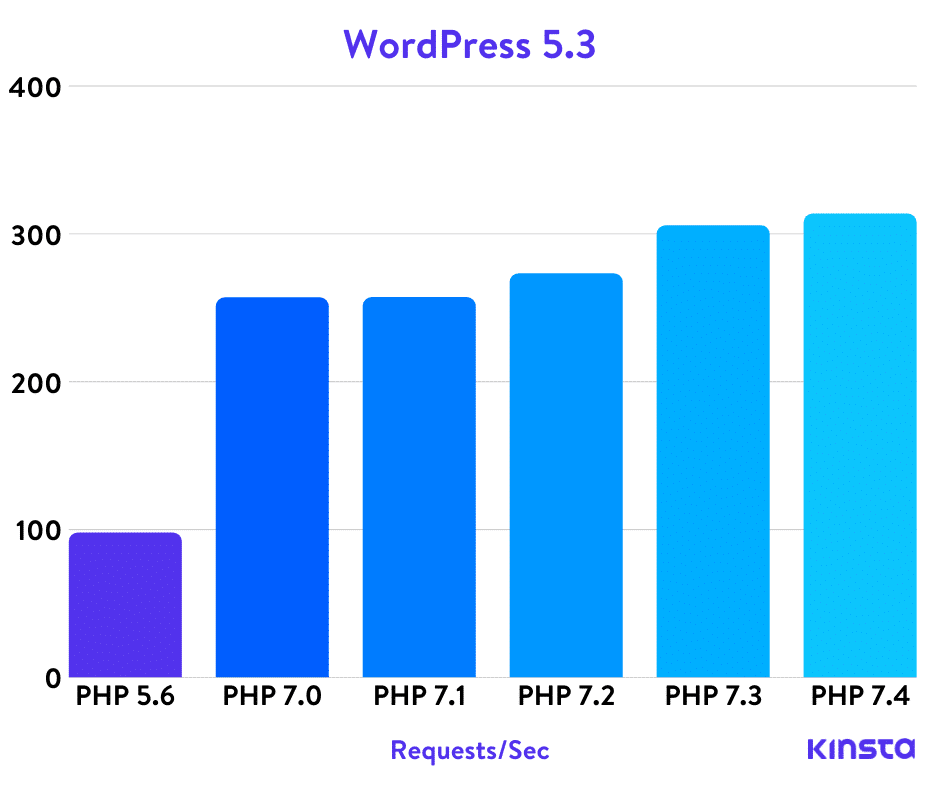We really focus on producing fast, future proof, easy to use #WordPress websites over the last few years.
A fast website is very important, not only for visitors but also for SEO too.
Here are some of the things you can do to speed up your site, with quick wins.
Thread...
A fast website is very important, not only for visitors but also for SEO too.
Here are some of the things you can do to speed up your site, with quick wins.
Thread...
Update PHP to the latest version.
Currently this is version 8.0, but I would recommend for now, PHP 7.4 is what you should be using.
The speed wins are huge.
https://kinsta.com/blog/php-benchmarks/
Currently this is version 8.0, but I would recommend for now, PHP 7.4 is what you should be using.
The speed wins are huge.
https://kinsta.com/blog/php-benchmarks/
Limit third-party scripts and resources as much as you can. You will be surprised at just how many resources the likes of @youtube and other 3rd party stuff actually loads.
Update to a good quality host - even one that specifically states they are #WordPress optimised.
A good host can really help in achieving faster initial page loads including things like improved TTFB (time to first byte).
A good host can really help in achieving faster initial page loads including things like improved TTFB (time to first byte).
Check your DNS speed. If this is a slow then consider using a better DNS provider which will mean it is quicker for visitors to find the location of your site on your server.
I have seen some good results with @Cloudflare and @DNSMadeEasy but there are lots to choose from.
I have seen some good results with @Cloudflare and @DNSMadeEasy but there are lots to choose from.
Check which plugins are loading the most stuff on the front-end by carrying out an audit, and remove plugins you really don't need.
Also look for alternatives that take performance more seriously.
Tools such as Query Monitor are great for this.
https://querymonitor.com/
Also look for alternatives that take performance more seriously.
Tools such as Query Monitor are great for this.
https://querymonitor.com/
Optimise the images on your site. That means compressing them appropriately and not uploading images straight from your camera or phone.
IME image don't need to be larger than 2048px wide on the web. Compressing them and removing unnecessary meta data can save a lot of space.
IME image don't need to be larger than 2048px wide on the web. Compressing them and removing unnecessary meta data can save a lot of space.
Lazy load your images. This means only loading an image when it is in the viewport.
Lots of plugins do this for you now and even WordPress core includes the loading="lazy" attribute for core images.
I have had success with WP Rocket Lazy Loading https://wordpress.org/plugins/rocket-lazy-load/
Lots of plugins do this for you now and even WordPress core includes the loading="lazy" attribute for core images.
I have had success with WP Rocket Lazy Loading https://wordpress.org/plugins/rocket-lazy-load/
Utilise caching on your site. It saves requests in memory for the future meaning less processing taking place when pages load.
Where appropriate you can statically cache the HTML produced by #WordPress meaning WP never really loads.
A good host will have an easy(ish) solution.
Where appropriate you can statically cache the HTML produced by #WordPress meaning WP never really loads.
A good host will have an easy(ish) solution.
Then there are lots of smaller things including:
- Use a CDN
- Check font performance
- Minify CSS and JS
- Remove render blocking JS, often loading in the footer of the site is better for performance
- Disable embeds, emojis and comments when you can
- Use a CDN
- Check font performance
- Minify CSS and JS
- Remove render blocking JS, often loading in the footer of the site is better for performance
- Disable embeds, emojis and comments when you can
So there you have some of the tips that we have used.
Speed is important and should always be taking into consideration with website development.
A faster website is a better website for everyone.
What is your best tip for improving website speed and performance?
Speed is important and should always be taking into consideration with website development.
A faster website is a better website for everyone.
What is your best tip for improving website speed and performance?

 Read on Twitter
Read on Twitter


